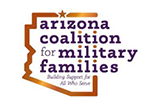Moral injury is a term that describes the profound psychological distress that arises from actions, or the lack thereof, that violate one’s moral or ethical code. Unlike physical injuries, where the wound is visible, moral injury is an invisible battle scar that many service members and veterans carry silently, often struggling to share or articulate their experiences due to fear of judgment or misunderstanding.
Moral injury can stem from various situations that people may encounter in the work required in military service, such as the necessity to make life-or-death decisions under extreme pressure, witnessing or partaking in actions that contradict their moral beliefs, or feeling betrayed by leadership, God or the system they serve. These experiences can lead to intense feelings of guilt, shame, and a profound questioning of one’s moral compass, significantly impacting one’s mental health and well-being.
One of the greatest hurdles in addressing moral injury is the reluctance of those affected to share their experiences. This reluctance is often rooted in the fear of being judged or not fully understood by those who haven’t faced similar ethical dilemmas. The military culture, which prides itself on strength and resilience, can inadvertently discourage open discussions about moral injury, leaving many to suffer in silence.
The first step in tackling moral injury is creating a safe, non-judgmental space for service members and veterans to share their experiences. This requires a deep understanding and empathy from those willing to listen, including trusted chaplains, mental health professionals, peers, and friends. Recognizing the unique challenges faced by those with moral injury is crucial in offering the support they need.
Chaplains and mental health professionals play a vital role in providing the necessary support for those grappling with moral injury. Chaplains, with their unique position of trust within the military structure, offer a confidential and spiritually nurturing environment for service members and veterans to explore their moral injuries. Mental health professionals complement this support with therapeutic interventions designed to address the psychological aspects of moral injury, facilitating a holistic healing process.
Peer support can also serve as another vital resource for those dealing with moral injury. Sharing experiences with others who have faced similar moral dilemmas can provide a sense of community and understanding that is hard to find elsewhere. Sometimes this is what service members and veterans may describe as camaraderie. So much is understood between two service members – even if they have never met before. This unspoken understanding is due to the similar experiences that they have had with a military service lifestyle. Gathering with peers whether one-on-one or in groups offers an opportunity for open discussion, mutual support, and healing, reinforcing the idea that one is not alone in their struggles.
The idea of camaraderie is one reason that the Arizona Coalition for Military Families developed the Coaching Into Connection program. The program offers no-cost support from “Connection Coaches” who are veterans. They help service members, veterans, and their family members find communities, groups, and activities so they can be connected to others with similar experiences – building camaraderie.
The Arizona Coalition for Military Families is committed to a multifaceted approach to supporting service members and veterans experiencing moral injury by offering opportunities for connection and resources for support. If you or somebody you know could benefit from connection to these and other resources, give us a call at 866-4AZ-VETS (866-429-8387).








